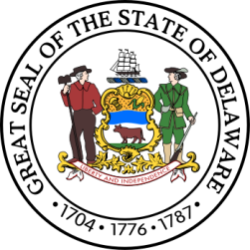Delaware Online Gambling Bounces Back 42% In November

After sinking to its lowest level of the year so far in October, the First State’s online gambling market staged a dramatic comeback in November rising by 42% to $184,898 compared to the previous month, and 66% higher than the $111,387 generated in November 2013, the first month of regulated online gambling in Delaware. Last month’s tally also represents Delaware’s fourth-best result in its 13 months iGambling history.
The Story So Far In 2014
November’s dramatic rise in online gambling revenues is a hugely positive reflection on Delaware’s regulated market, especially at a time when New Jersey has not reported any growth since August (+5%), and Nevada since June (+20%). Here are Delaware’s online gambling results (incl. poker) of 2014 so far, with just one month left of 2014:
Jan – $145,667 (+3.7%)
Feb – $167,333 (+14.8%)
Mar – $207,038 (+23.7%)
Apr – $240,762 (-12.2%)
May – $175,410 (-27.4%)
Jun – $187,332 (+6.8%)
Jul – $172,496 (-7.9%)
Aug – $172,853 (-0.2%)
Sep – $145,022 (-16%)
Oct – $130,468 (-10%)
Nov – $184,898 (+42%)
Delaware Park Continues Market Dominance
According to the Delaware Lottery’s statistics for November, Delaware Park has continued its dominance of the state’s online gambling landscape with 66% of the market ($122,894), followed a way behind by Dover Downs with a 17% market share worth $31,421, and Harrington Raceway only slightly less with a 16% share ($30,582).
iGaming versus iPoker
From the $184,898 in revenues generated in November, a whopping 82% ($152,084) was accounted for by the state’s online table games and video lottery offerings. The remaining $32,814 came from online poker, which was 15% higher than the $28,509 generated in October, with Delaware Park once again the main player in this space with 59% of the state’s online poker revenues. Nevertheless, Delaware’s online poker revenues have declined dramatically since launch, with November’s tally a mere 26% of the $106,922 peak total reached in December 2013.
November’s positive results were also tempered by the fact that Delawareans signing up for new online accounts reached a low point last month of just 308 players, a mere 11% of the 2,654 gamblers who opened new accounts in the first month of regulated online gambling.
Too Little Traffic For iPoker
Whereas the USA’s three regulated states of Nevada, New Jersey, and Delaware have online gambling markets capable of supporting themselves, online poker has more restrictive requirements and needs a critical number of players in order to ensure sufficient liquidity in the games. Only New Jersey with its population of 8.9 million people comes close to satisfying such liquidity, and in November generated $1,877,603 from online poker. However, even NJ is finding it difficult to support a truly viable online poker market, with November’s total down 4.59% compared to October, and has to mostly rely on its online gambling casino games to fill state coffers.
In fact, a recent pokerupdate report suggests a state requires a population of more than 40 million people in order to support a functioning online poker market. Therefore, the need for sparsely populated states like Delaware (925k) and Nevada (2.8m) to form online poker compacts like the one agreed earlier this year become particularly pressing.
Pressing Need For iPoker Compact
In February, the Governors of Nevada and Delaware signed an interstate online poker compact and announced its imminent launch in the summer. They even expressed their hopes New Jersey would be tempted to throw in its lot with them at some point, and as Dover Downs Casino CEO Ed Sutor, commented at the time:
“What that means [interstate compact], quite simply, is we’ll have a lot more players who can come into the poker room..There will be more games available at different denominations. And that should help both states.. It would be very helpful if New Jersey got into our compact, not only for us, but for them. They need more players, as well.”
However, the elusive agreement has yet to be enacted and the lack of action, as well as New Jersey’s unwillingness to join the potential compact, has been a major factor in dissuading other would be states from embracing online poker regulations of their own. At the beginning of this year, a Gambling Compliance report even suggested that at least 10 US states would consider online poker legalization in 2014, including California, Colorado, Hawaii, Illinois, Iowa, Louisiana, Massachusetts, Mississippi, and Pennsylvania. Unfortunately, minimal revenues out of the country’s three regulated states this year has given theses states little incentive to plough ahead with such a divisive political issue for now.







